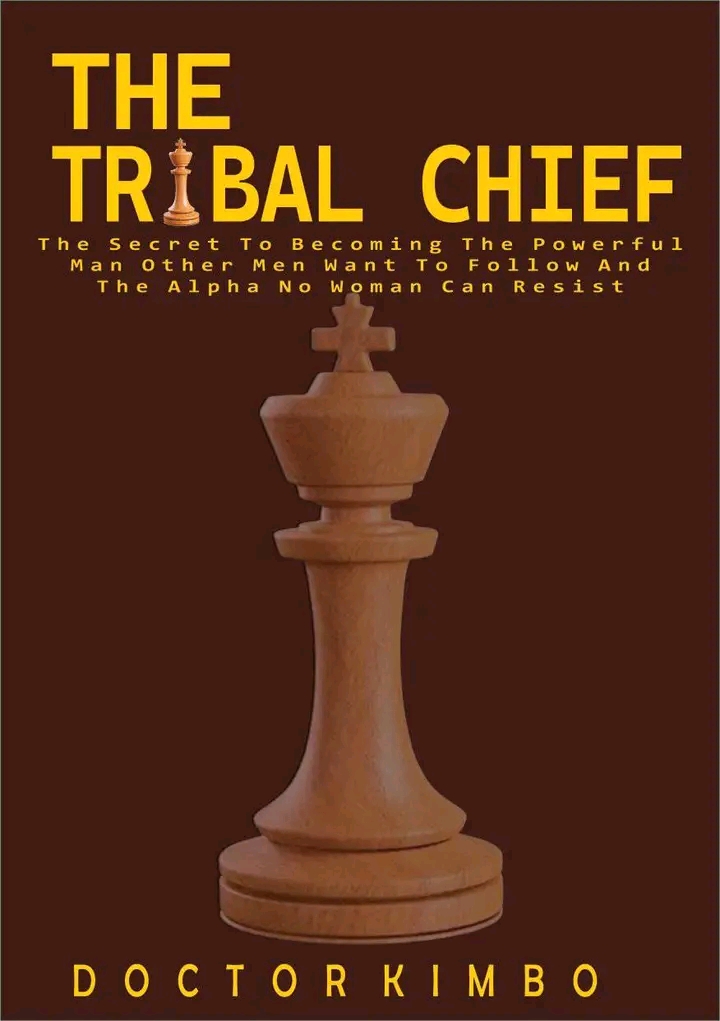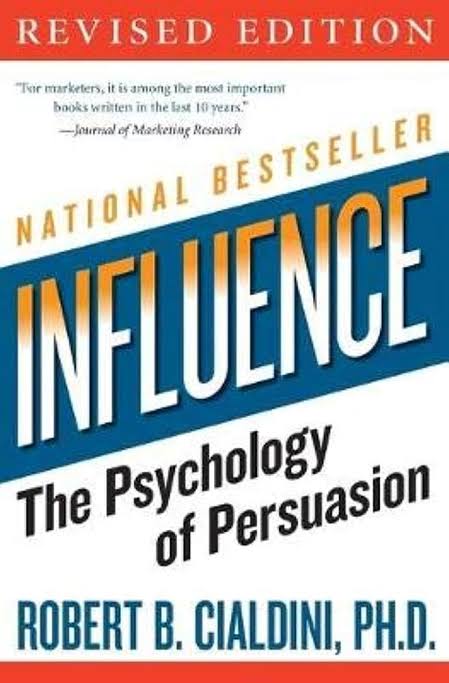
Most people like to believe they are good, moral, and above temptation. That’s a lie. Strip away the social conditioning, and what remains is a creature driven by pride, greed, lust, envy, gluttony, wrath, and sloth—the so-called seven deadly sins. Religions call them sins. Psychologists call them instincts. Tribal Chiefs call them tools of Power.
If you understand these primal urges, you stop playing by society’s fake rules and start playing humanity itself. You see, people aren’t rational—they are predictable. They want status, power, pleasure, and an easy life. They resent those who have more. They crave shortcuts. They fear loss. They can be controlled. An intelligent leader doesn’t resist this reality—he exploits it. And today, I’ll show you exactly how.

The Seven Sins of Power: Understanding Human Weakness
- Pride (Ego & Status)
Pride is the belief that you are better, smarter, or more important than others.
It’s why people take selfies in front of luxury cars they don’t own and why a man with no abs will still flex in the mirror after every shower.
- Greed (Desire for More)
Greed is the bottomless pit of wanting—more money, more power, more influence.
It’s why a billionaire still wakes up at 5 AM to chase an extra dollar, even though he could spend the rest of his life swimming in gold like Scrooge McDuck.
- Lust (Desire, Attraction, Power)
Lust isn’t just about sex—it’s about wanting something so badly you lose common sense.
It’s why people buy gym memberships in January and quit by February. The dream is exciting, but the work? Not so much.
- Envy (Comparison & Social Pressure)
Envy is the sickness of seeing someone else winning and hating them for it.
It’s why a guy with a 15-year-old Toyota will laugh at his friend’s new Mercedes and say, “I heard those German cars break down a lot.”
- Gluttony (Overindulgence & Addiction)
Gluttony is knowing you should stop but not stopping anyway.
It’s why someone on a diet says, “Just one more slice,” then wakes up surrounded by empty pizza boxes, ashamed but satisfied.
- Wrath (Anger & Revenge)
Wrath is the desire to destroy everything when you feel wronged.
It’s why a man will break his own TV after his football team loses—as if Samsung was the one that missed the penalty.
- Sloth (Laziness & Comfort-Seeking)
Sloth is wanting the reward without the effort.
It’s why someone will spend two hours looking for a shortcut instead of just doing the 30-minute task.
If laziness was an Olympic sport, half the world would oversleep and miss their event.
WHY DO WE CALL THEM “DEADLY SINS”?

They are called “Deadly Sins” because, according to Christian tradition, they lead to spiritual death by pulling a person away from righteousness.
These sins are seen as the root causes of all other sins, meaning once you fall into them, you’re on a slippery slope to complete moral corruption.
Of course, from a Tribal Chief’s perspective, calling them deadly is a bit dramatic.
The only thing they kill is self-awareness—people indulge in them without realizing how predictable and controllable they become.
In reality, they’re not sins at all… they’re just human nature in its rawest form.
WHY DOES HUMAN NATURE HAVE THESE WEAKNESSES?
The 7 Deadly Sins evolved in human nature as deeply ingrained psychological mechanisms that served critical functions in survival, social organization, and power dynamics throughout human history.
These behaviors and emotions didn’t evolve because they were inherently “evil,” but rather because they are byproducts of primal instincts that have served humans for millennia.
Here’s why each of these traits likely became embedded in human nature:
- Pride: The Need for Self-Respect and Social Hierarchy
Pride evolved as a mechanism to maintain self-worth and reinforce social hierarchy.
In early human societies, individuals who had a strong sense of self-respect and dignity were more likely to survive because they were better able to assert their place in the group.
Pride helped people navigate power structures—those who had pride in themselves could defend their status, resources, and relationships.
Over time, this sense of personal value and the need for recognition became ingrained in human psychology, ensuring that individuals would protect their standing and assert dominance when necessary.
You are now discussing Evolutionary Science with Doctor Kimbo.
- Greed: The Drive for Resources and Survival
Greed is fundamentally tied to the basic survival instinct.
Throughout human history, securing more resources—whether it was food, territory, or power—was crucial for survival.
The desire for more ensured that individuals and tribes had enough to sustain themselves and were not left vulnerable during times of scarcity.
Greed drove early humans to accumulate what they could, ensuring their dominance and security in the group.
Over time, this drive for more became a fundamental part of human nature, manifesting as a desire for wealth, status, and power in modern societies.
- Lust: The Urge to Reproduce and Secure Legacy
Lust is a direct result of the biological imperative to reproduce and ensure genetic survival.
Humans, like all species, are driven by a desire to pass on their genes.
This powerful urge to seek sexual satisfaction was essential in the development of human societies, obviously.

It ensured that reproduction happened frequently, and that genetic traits were passed down across generations.
Over time, this desire for sexual attraction evolved into a complex emotional and social dynamic that not only drives procreation but also influences power, attraction, and status in social interactions.
- Envy: The Need for Social Comparison and Status
Envy likely evolved as a social comparison tool. In early human societies, the ability to compare oneself to others and desire what they had was crucial for social advancement.
Envy encouraged individuals to compete for resources, mates, and status within the group, leading to progress and adaptation.
When people felt envious of others, they were motivated to raise their own standing—whether through skills, contributions, or alliances.
This created a competitive environment where individuals strove to improve themselves and advance in social rank, benefiting the overall tribe.
- Wrath: The Response to Injustice and Threats
Wrath, or anger, is deeply tied to the fight-or-flight response, which evolved as a survival mechanism.
When an individual or group was faced with a threat—whether physical, emotional, or social—anger propelled them into action.
Wrath gave humans the drive to fight for justice, protect their resources, and defend against threats.
Early humans who could get angry enough to fight or strike back were more likely to survive and protect their tribe.
As society evolved, this emotion continued to serve as a way to deal with perceived wrongs and injustice, although it often becomes maladaptive in modern contexts.
- Sloth: The Desire for Energy Conservation and Risk Avoidance
Sloth—or the tendency to avoid unnecessary effort—evolved as a natural energy-saving mechanism.
Early humans had to conserve energy to ensure they could survive in harsh environments, find food, and reproduce.

Avoiding excessive activity helped prevent burnout and preserved the resources needed to survive.
While this trait might seem like a negative flaw today, it was a critical survival strategy that allowed humans to take breaks and ration energy when faced with long-term challenges or periods of scarcity.
Over time, sloth evolved into behaviors associated with procrastination and indifference in modern contexts.
- Gluttony: The Need to Consume in Times of Abundance
Gluttony is tied to a survival instinct to overconsume when food or resources were abundant.
Early humans faced periods of feast and famine—when food was plentiful, it was crucial to consume as much as possible to prepare for leaner times.
This drive ensured that humans had enough energy to survive during food scarcity.
Over time, this urge to overindulge became ingrained in human nature.
Today, gluttony often manifests in excessive consumption of food, wealth, or pleasure, driven by an internalized desire to stockpile resources even in times of abundance.
Understand:
The 7 Deadly Sins evolved as part of human nature to address basic survival needs in early human environments.
These traits were adaptive—they helped humans navigate social dynamics, secure resources, protect themselves, and ensure reproductive success.
However, in modern societies, these instincts often manifest in exaggerated, maladaptive ways, leading to behaviors that can be destructive or unproductive.
Understanding these sins isn’t just about labeling negative traits—it’s about recognizing that they are hardwired into human psychology and were essential for survival.
Today, these primal instincts can still be harnessed as tools for influence, power, and personal success.
They are pivotal in human behavior, and once understood, they can be used to navigate modern challenges more effectively.
CAN YOU WEAPONIZE HUMAN WEAKNESS TO WIN?
That’s why we are having this topic in the first place.
This is A Machiavellianism Lesson!
How to Use PRIDE to Control Everyone in Your Tribe
Pride is the most exploitable human weakness because no one thinks they have it—yet it controls them completely.
The trick is simple: Make people feel important, and they will do anything to protect that feeling.
Here’s how a Tribal Chief can weaponize PRIDE in different interactions:
- Your Team (Employees, Warriors, or Followers)
Make them feel like they are part of something elite.
Give them titles (even meaningless ones). Call them “The Inner Circle,” “The Vanguard,” or “The Founding Members.”
When people feel special, they work harder—because admitting failure would mean losing that special status.

▶ Example: “Only the strongest minds can handle what we do here. If you’re still standing after a year, you’ll be one of the legends of this Tribe.”
(Now, they will stay just to prove they are strong.)
- Your Clients (Business or Services)
Clients want to feel smarter than others for choosing you.
Make them believe they have exclusive knowledge or better taste than the average fool who hasn’t discovered your product.
▶ Example: “Most people settle for mediocrity, but you? You’re among the few who actually value quality. That’s why you’re here.”
(Now, they will buy—because rejecting your offer means admitting they are mediocre.)
- Your Women (Or Potential Women)
A woman’s pride is in being desired, unique, and high-status.
If you make her feel like she has won your attention, she will crave it more.
The mistake most men make? They chase and boost her ego too much—removing the challenge.
▶ Example: “I don’t usually get impressed easily, but you… you have something different.”
(She now spends time wondering what makes her different—hooked.)
- Your Competition (Enemies or Rivals)
Pride makes people overconfident and blind to manipulation.
If you want to make an enemy slip, inflate his ego and push him into reckless decisions.
The proud man underestimates his opponent—that’s when you strike.
▶ Example: “You’ve always been the smartest guy in the room, haven’t you? I’m sure you’ve got this figured out already.”
(Now, he won’t second-guess himself—his own pride will lead him into mistakes.)
- Your Children
Children want to feel strong, capable, and admired.
If you make a child feel like a warrior instead of a victim, they will naturally push themselves harder.
Instead of comforting them, challenge their pride in a way that fuels growth.
▶ Example: “A strong warrior doesn’t cry about little things. Show me your strength.”
(Now, instead of whining, the child wipes his tears—because he sees himself as strong.)
- Random People (Strangers, Bureaucrats, Gatekeepers)
Most people in life are gatekeepers—they control access to something you need.
Their pride comes from feeling powerful in their position.
If you acknowledge that power (even falsely), they will bend the rules for you.
▶ Example: “I know you probably deal with a hundred requests a day, and most people don’t appreciate your effort. But you’re the only one who can sort this out for me.”
(Now, they will help—because rejecting you means rejecting their own importance.)
See?
Pride isn’t just a sin—it’s a leash.
When you learn to pull it gently, you make people dance without them even realizing they are being led.
Control their pride, and you control them.
How to Use GREED to Control Everyone in Your Tribe
Greed is the hunger for more—money, power, influence, status, or resources.
It’s a bottomless pit, and the beauty of it?
No one thinks they’re greedy; they just think they deserve more.
The Tribal Chief who understands this can dangle the right bait and make people chase it blindly.
Here’s how to weaponize GREED in different interactions:
- Your Team (Employees, Warriors, or Followers)
People work harder when they believe more effort equals more reward—even if that reward is just an illusion.
The secret? Keep the prize just out of reach so they never stop chasing.
▶ Example: “I see leadership potential in you. If you keep pushing, there’s a big opportunity coming your way.”
Now, they will grind harder—not because they have the promotion, but because they might get it.
▶ Bonus Trick: Give team members tiers of status—Bronze, Silver, Gold, Elite. Each level promises more perks, but they must ‘earn’ their way up.
This keeps them competing against each other for a reward that you control.

- Your Clients (Business or Services)
People buy when they feel they’re getting an exclusive deal or access to something others don’t have.
Greed makes them want more for less—use that against them.
▶ Example: “Only the first 50 clients will get this premium deal. After that, prices go up.”
Now, they rush to buy—not because they need it, but because they fear missing out.
▶ Bonus Trick: Offer a fake VIP level—“Only serious clients get this package.” Now, they must buy it to prove they’re serious.
- Your Women (Or Potential Women)
A woman’s greed is often for status, security, or emotional investment. She wants to feel like she’s getting more from you than any other woman.
▶ Example: “I don’t open up to just anyone… but there’s something different about you.”
Now, she craves that exclusive emotional access.
▶ Bonus Trick: Imply competition. If she thinks another woman is getting more attention, greed will make her fight for more of you.
- Your Competition (Enemies or Rivals)
Greed makes people overextend and destroy themselves. The best way to defeat an enemy? Tempt them into overreaching.
▶ Example: “I heard a lot of investors are looking at your business. You should expand quickly before someone else takes over.”
Now, they rush into bad decisions—spending too fast, overhiring, or making mistakes.
▶ Bonus Trick: Offer them a “too good to be true” deal that drains their resources—then pull out at the last minute.
- Your Children
Young humans are naturally greedy for praise, toys, or attention. You can use this to make them work harder, behave better, or become tougher.
▶ Example: “I have something special for you, but I only give it to children who prove they’re strong.”
Now, they try harder—not for the reward, but to earn it.
▶ Bonus Trick: Give rewards in stages—not all at once. If you give them 100 shillings, they spend it fast. But if you give them 10 shillings per task, they will keep working long after the work is done—just to get more.
- Random People (Strangers, Bureaucrats, Gatekeepers)
Everyone has a price—it’s just not always money.
Some want power, others want recognition, and some just want free stuff.
Find their price, offer a taste, and make them work for more.
▶ Example: “You know, if you help me out today, I’ll make sure to come straight to you next time I need something.”
Now, they bend the rules—not because they’re kind, but because they want more favors.
▶ Bonus Trick: Leave small tips for people who handle your work—but make them believe bigger tips are coming next time.
Now, they will compete for your business and do favors without you even asking.
Yes!
Greed is the best leash—people will pull themselves forward if they believe a bigger reward is ahead.
The key is simple: never give them everything at once. Keep them chasing.
Control their greed, and you control them.
How to Use LUST to Control Everyone in Your Tribe
Lust is one of the strongest biological drives—it overrides logic, makes people impulsive, and blinds them to manipulation.
The Tribal Chief who understands this can use desire—sexual, emotional, or material—to make people act against their best interests.
Here’s how to weaponize LUST in different interactions:
- Your Team (Employees, Warriors, or Followers)
People lust after power, recognition, and authority. If you make them desire status, they will work harder just to prove themselves.

▶ Example: “I don’t give leadership positions to just anyone. But if you keep proving yourself, we might have a place for you at the top.”
Now, they become obsessed with earning your approval—even if it costs them.
▶ Bonus Trick: Use scarcity—make leadership feel rare and exclusive. People lust for what is hard to get.
- Your Clients (Business or Services)
People don’t just buy products—they buy feelings.
They lust after a better body, a higher status, or admiration from others.
If you sell desire, you sell anything.
▶ Example: “This isn’t for everyone. Only the boldest men who want an edge over the competition go for this.”
Now, they lust for the identity attached to the product.
▶ Bonus Trick: Make your offer feel like a secret weapon—“Those who know, know.”
Now, they want it even more.
- Your Women (Or Potential Women)
A woman’s lust is not just sexual—it’s emotional and psychological.
She lusts for attention, dominance, mystery, and the thrill of the chase. If you remove the chase, she loses interest.
▶ Example: “You’re interesting. But I’m not sure if you’re my type yet.”
Now, she works to prove herself to you—reversing the game.
▶ Bonus Trick: Always be a little unpredictable. If she’s 100% sure she has you, she stops desiring you. Keep her chasing your validation—not the other way around.
- Your Competition (Enemies or Rivals)
Lust makes people take stupid risks. If you can dangle an irresistible opportunity, your rival will pursue it blindly—even if it destroys them.
▶ Example: “I heard a high-profile investor is interested in partnering with a business like yours. You should act fast before someone else takes the spot.”
Now, they rush into bad decisions—driven by greed and lust for prestige.
▶ Bonus Trick: If you want to trap someone, use an attractive decoy—a fake opportunity, a fake friend, or even a fake romance—to lure them into exposing their weaknesses.
- Your Children
Children lust for attention, admiration, and the feeling of being special. If you make them crave your approval, they will work for it.
▶ Example: “I only teach the most disciplined warriors how to do this.”
Now, they want to be among the chosen ones.
▶ Bonus Trick: Give them challenges with rewards—not just gifts. If they work for something, they value it 10x more.
- Random People (Strangers, Bureaucrats, Gatekeepers)
Gatekeepers lust for power, influence, or control. If you feed that desire, they will break rules for you.
▶ Example: “You seem like the kind of person who knows how to get things done. I could really use someone like you in my corner.”
Now, they feel powerful and want to prove their worth.
▶ Bonus Trick: Flirt with the idea of giving them something rare—VIP treatment, an inside scoop, or special recognition. Lust makes them chase favors without thinking.
See that?
Lust isn’t just about sex—it’s about desire for anything powerful, exclusive, or thrilling.
If you understand what someone lusts for, you can pull their strings without them even realizing it.
Control their desires, and you control them.
How to Use ENVY to Control Everyone in Your Tribe
Envy is the pain of seeing someone else have what we want. It’s a burning fire that makes people competitive, insecure, and desperate to prove themselves.

The Tribal Chief who understands this can trigger envy to push people in the direction he wants—without lifting a finger.
Here’s how to weaponize ENVY in different interactions:
- Your Team (Employees, Warriors, or Followers)
People work harder when they feel someone else is getting ahead of them.
If you make them envy status, rewards, or attention, they will grind just to “catch up.”
▶ Example: “I’ve been watching the team, and some people are really stepping up. A few of you are in line for something big.”
Now, everyone competes—because no one wants to be left behind.
▶ Bonus Trick: Use public recognition sparingly. Praise one person just enough to make the others envious—but not enough to make them feel it’s out of reach.
- Your Clients (Business or Services)
People buy things not just because they need them, but because they want to outshine others.
If you frame your product as exclusive, clients will want it—just to be ahead of the competition.
▶ Example: “This is what the top 1% are using. Those who don’t have it are already falling behind.”
Now, they buy—not for the product, but for the fear of missing out.)
▶ Bonus Trick: Use testimonials from successful people to make potential buyers feel like they’re losing to others who are smarter, richer, or more powerful.
- Your Women (Or Potential Women)
A woman’s envy is not always about beauty—it’s about who gets the most of your attention, affection, and dominance.
If she feels another woman is getting more, she will fight for more.
▶ Example: “I had a deep conversation last night. It’s rare to find someone who truly understands me.”
Now, she starts wondering who that person is—and suddenly craves more of your attention.
▶ Bonus Trick: Stay just out of reach. If she feels like she has all of you, she stops chasing.
But if she sees other women want you, her envy reignites her desire.
- Your Competition (Enemies or Rivals)
Envy makes people rush into stupid decisions.
If your rival believes you’re more successful, powerful, or ahead of them, they will act recklessly—trying to prove they are better.
▶ Example: “I heard someone big is looking to partner with a leader in this field. I wonder who they’ll pick.”
Now, your rival jumps into action, fearing you might win first.
▶ Bonus Trick: Spread rumors of your success—even if it’s exaggerated.
If they think you’re winning, they overspend, overpromise, and overcommit—until they destroy themselves.
- Your Children
Children naturally compete for approval and status.
If they envy their siblings or peers, they will push themselves harder—not because you forced them, but because they refuse to be outdone.
▶ Example: “I’ve seen someone in this house becoming really responsible. I might have to start giving them extra privileges.”
Now, they all work harder—just to be that ‘someone.’
▶ Bonus Trick: Never say who is doing better. Keep it vague—so they all try to be the one you’re talking about.
- Random People (Strangers, Bureaucrats, Gatekeepers)
People in positions of power hate seeing others gain influence over their territory.

If you inflate their envy, they will work harder to prove their authority to you.
▶ Example: “I was told to come to someone else for help, but I had a feeling you’re the one who actually gets things done around here.”
Now, they fight to prove they’re better than their peers.
▶ Bonus Trick: If someone has a rival or competitor, subtly praise that competitor. They will instinctively work against them—without realizing you played them.
Genius!
Envy is one of the strongest motivators—people will work, fight, and destroy themselves just to close the gap between them and those they envy.
If you control what people envy, you control what they chase.
How to Use WRATH to Control Everyone in Your Tribe
Wrath is rage, hatred, and the burning need for revenge.
When a man is angry, he stops thinking rationally—he becomes impulsive, aggressive, and easy to manipulate.
The Tribal Chief who understands this can redirect people’s anger to serve his own agenda.
Here’s how to weaponize WRATH in different interactions:
- Your Team (Employees, Warriors, or Followers)
A team united by anger is unbreakable.
If you give them a common enemy to hate, they will work harder, stay loyal, and fight for your cause without question.
▶ Example: “Do you know why they don’t take us seriously? They think we’re weak. They think we don’t have what it takes.”
Now, their anger fuels their work—because no one wants to be seen as weak.
▶ Bonus Trick: If morale is low, find a rival to blame. Redirect their frustration toward an external threat, and they’ll stop questioning you.
- Your Clients (Business or Services)
People buy when they’re emotionally charged.
If you make them angry at their current situation, they will pay for a way out—without thinking twice.
▶ Example: “You’ve been lied to. They told you this was the best option, but they kept the real solution hidden. That changes today.”
Now, they buy—not just for the product, but to prove they are not fools.
▶ Bonus Trick: Attack a common enemy—a system, a competitor, or a fake guru. Make your client feel like they’ve been played—and that buying from you is revenge.
- Your Women (Or Potential Women)
A woman in emotional turmoil is easier to control.
If you stir her emotions, she will obsess over you, whether through love or anger.
▶ Example: “I see what you’re doing. Trying to get me jealous? Cute.”
Now, she feels exposed—and rushes to prove she wasn’t playing games.
▶ Bonus Trick: Never give instant reactions. If she expects anger but you remain calm, she becomes even more emotionally unstable—which gives you control.
- Your Competition (Enemies or Rivals)
An angry rival makes mistakes.
If you provoke their ego, they will overcommit, overreact, or expose their weaknesses.
▶ Example: “I admire how some people try to stay relevant in this space. It’s cute.”
Now, your rival feels attacked—and rushes to prove themselves, exposing their flaws.

▶ Bonus Trick: If you want to destroy someone, bait them into acting out publicly. When they explode, they lose credibility—and you win without lifting a finger.
- Your Children
A child’s wrath is short-lived but powerful. If you teach them how to channel their anger into self-improvement, they will become relentless warriors.
▶ Example: “Are you going to let that challenge break you? Or are you going to fight back and prove you’re better?”
Now, they use their anger as fuel instead of frustration.
▶ Bonus Trick: Teach them stoicism—how to stay calm when others lose control. A child who controls his wrath becomes a future leader.
- Random People (Strangers, Bureaucrats, Gatekeepers)
People in positions of power have hidden frustrations. If you identify what pisses them off, you can use it to get what you want.
▶ Example: “I bet you deal with a lot of people who waste your time. I’m not one of them—let’s make this simple.”
Now, they respect you because you understand their struggles.
▶ Bonus Trick: If someone is already frustrated, let them rant. Once they release their anger, they feel indebted to you for listening—making them more cooperative.
Wrath is a weapon and a weakness—whoever controls a man’s anger controls his actions.
If you can direct someone’s fury, you can make them fight your battles, destroy your enemies, or work twice as hard—without realizing they’re serving you.
How to Use GLUTTONY to Control Everyone in Your Tribe
Gluttony isn’t just about food—it’s the urge to consume endlessly.
Whether it’s money, power, attention, or pleasure, a glutton always wants more and will sacrifice logic, discipline, and even self-respect to get it.
The wise Tribal Chief feeds a man’s hunger just enough to keep him addicted—without ever truly satisfying him.
Here’s how to weaponize GLUTTONY in different interactions:
- Your Team (Employees, Warriors, or Followers)
People who want more—more money, more perks, more recognition—will keep working like madmen.
If you control their access to rewards, you can make them chase endlessly without realizing they’re trapped.
▶ Example: “Big bonuses are coming soon, but only for the real performers. Who’s hungry for it?”
Now, they fight each other to prove they’re worthy, never questioning the system.
▶ Bonus Trick: Increase rewards gradually—not all at once. If they get too much, they stop chasing. The goal is addiction, not satisfaction.
- Your Clients (Business or Services)
People never stop wanting.
If you make them feel like they’re getting a taste—but could have even more, they will keep coming back for the next fix.
▶ Example: “This is just the starter package. The real players go for the full experience.”
Now, they feel unsatisfied and rush to spend more.
▶ Bonus Trick: Use upsells—give them a taste, then make them pay for more. A glutton can’t resist.
- Your Women (Or Potential Women)
A woman hooked on emotional highs will keep coming back for more.
If she never feels completely satisfied, she will keep chasing the experience.
▶ Example: “I love our time together. It’s crazy how much deeper this could go if we had more time.”
Now, she wants more time with you—because she feels she hasn’t gotten the ‘full’ experience.
▶ Bonus Trick: Give just enough attention to keep her hooked, but never all at once. A woman who feels fully ‘fed’ will stop craving you.
- Your Competition (Enemies or Rivals)
A rival consumed by gluttony for power or recognition will overreach and expose weaknesses.
If you bait him with something he can’t resist, you can make him self-destruct.
▶ Example: “I might pass on this deal. It’s too much opportunity for just one man.”
Now, he rushes in blindly—taking risks he shouldn’t.
▶ Bonus Trick: If you know your rival craves status, create a fake opportunity—he will waste resources chasing it.
- Your Children
Children are naturally greedy for fun, adventure, and rewards.
If you control their access, you can shape their behavior.
▶ Example: “I was going to let you stay up late, but I only do that for kids who finish all their work.”
Now, they rush to finish—because they lust for the ‘extra’ time.
▶ Bonus Trick: Make rewards feel scarce. A child who thinks rewards are rare and special values them more.
- Random People (Strangers, Bureaucrats, Gatekeepers)
If someone is hungry for favors, money, or power, you can make them bend rules or break principles just to get more.
▶ Example: “I always reward people who make things happen for me. You strike me as the kind of person who likes to win.”
Now, they do favors for you—hoping to ‘win’ more rewards.
▶ Bonus Trick: Start with small rewards, then increase the bait—they will do bigger favors to keep the flow going.
Gluttony makes people weak, addicted, and controllable.
If you drip-feed what they crave, they will keep chasing it forever—without ever realizing they were never meant to reach satisfaction.
How to Use SLOTH to Control Everyone in Your Tribe
Sloth is the desire for ease, comfort, and minimal effort—the instinct to avoid work and any form of exertion.
A man or woman who seeks to avoid effort is easy to predict and even easier to control.

The Tribal Chief knows how to create situations where doing nothing becomes the most attractive option, making people rely on you for convenience and comfort.
Here’s how to weaponize Sloth in your interactions:
- Your Team (Employees, Warriors, or Followers)
The path of least resistance is a powerful tool.
If you make working with you effortless, your team will gravitate towards you and be loyal in exchange for convenience.
People love not having to think or work hard—so make it easy for them to follow you.
▶ Example: “I can handle all the heavy lifting; all you need to do is follow my lead.”
Now, your team will feel relieved, knowing you’ve taken on the hard work, so they can coast along with minimal effort.
▶ Bonus Trick: Automate everything and make their roles so simple that they don’t have to think too much. Give them easy tasks and reward them for doing less. They’ll never want to leave the comfort you provide.
- Your Clients (Business or Services)
People want instant gratification and effortless solutions.
If you can make buying from you feel like the easiest thing ever, they’ll keep coming back to you out of pure laziness.
Offer them a product or service that requires zero effort on their part.
▶ Example: “Why waste time searching for the best deal when I’ve already done the work for you?”
Now, they’ll happily take your offer because they don’t have to do anything but accept it.
▶ Bonus Trick: Offer subscriptions or automated services that make their lives even more effortless.
The less they have to do, the more they’ll rely on you for all their needs.
- Your Women (Or Potential Women)
A woman who’s used to ease will be more likely to gravitate towards the man who offers her comfort and convenience.
If you present yourself as the provider of relaxation and simplicity, she’ll become emotionally dependent on you.
Don’t make her work for affection or attention—make it easy, and she’ll come to you.
▶ Example: “Why worry about the little things when you have someone who’ll take care of everything for you?”
Now, she’ll feel like it’s easier to rely on you than to deal with any challenges on her own.
▶ Bonus Trick: Make your interactions feel effortless—never demand too much of her time or energy, and when she’s tired, be the one who’s ready to pamper her. She’ll love the comfort you bring.
- Your Competition (Enemies or Rivals)
A lazy competitor is a weak competitor.
If you offer them shortcuts or make their lives easier, they might just stop trying—and that’s when you move in and take control.
People who are lazy by nature are easy to dominate when you know how to exploit their need for ease.
▶ Example: “He doesn’t have the energy to keep up, he’ll probably quit soon enough.” (Now, your rival does all the hard work of self-destruction while you sit back and watch them fail.)
▶ Bonus Trick: If they’re looking for the quickest path to success, lead them down the wrong road that seems easy but ultimately leads to failure.
They’ll take the bait, and you win without lifting a finger.
- Your Children
Children seek comfort and avoidance of effort. If you make hard work feel unpleasant or boring, they will naturally choose laziness.
- Control them by making laziness seem like a bad choice and rewarding the behavior you want to see.
▶ Example: “If you want the easy way out, you’ll get the easy results. But if you’re willing to work hard, the rewards will be much sweeter.”
Now, they’ll start associating laziness with failure and will push themselves to put in effort.
▶ Bonus Trick: Make them avoid laziness at all costs by making it clear that nothing comes easy in life. Give them rewards for hard work, while reminding them that doing nothing will get them nowhere.
- Random People (Strangers, Bureaucrats, Gatekeepers)
If someone is tired of their effortful routine, you can leverage their laziness to get them to take shortcuts for you.
Offer them simple solutions that remove their need for hard work.
▶ Example: “Let’s just bypass all the paperwork and get this done quickly.”
Now, they’ll go along with it because it’s easier than following the tedious process.
▶ Bonus Trick: Simplify everything for them, making their job or task easier. By offering them no-hassle solutions, you’ll earn their favor and become their go-to for getting things done with the least amount of effort.
Sloth is a tool that thrives on ease and comfort.
When wielded properly, it makes people depend on you for convenience and softens their resistance to your influence.
A Tribal Chief knows that doing less is often the best way to get more—control others by removing effort from their lives and providing them the comfort they crave.
CAN YOU BUILD A SUCCESSFUL SCALABLE BUSINESS AROUND THE HUMAN NATURE?
Absolutely, The Tribal Chief can build a successful, scalable business around the 7 Deadly Sins—if approached strategically and with a deep understanding of human psychology.

These sins, when understood and utilized, are powerful tools for creating compelling narratives, marketing strategies, customer engagement, and business models.
The key is to align the business around these primal instincts in a way that appeals to both the subconscious and conscious desires of consumers.
Here’s how The Tribal Chief can leverage each of the 7 Deadly Sins to create a thriving business:
- Pride: Empowerment and Status
Business Model:
A luxury or high-end brand that taps into people’s desire for status and recognition.
This could include products or services that emphasize exclusivity, prestige, or elite access.
Marketing Strategy: Focus on self-empowerment and the ability to stand out from the crowd.
Emphasize how your product or service can make consumers feel more important, powerful, or elite.
Example: A premium coaching program, exclusive leadership courses, or a high-end fitness brand for the ambitious individual who wants to display their superiority.
- Greed: Desire for More
Business Model:
Create a business that offers high-value products or services with upsells and subscription models that encourage customers to keep coming back for more.
Think about luxury goods, investment opportunities, or financial services.
Marketing Strategy:
Use language that appeals to the desire for more, like “unlimited potential,” “exclusive opportunities,” or “seize wealth now.”
Provide customers with the illusion of abundance—that there is always more to gain.
Example: A financial education platform, investment opportunities, or even a membership-based business where access to more exclusive content, tools, or services is always a step away.
- Lust: Desire and Temptation
Business Model:
A brand focused on intense desires, sensual pleasures, or luxury experiences.
This can range from high-end dating services, fashion, luxury travel, or even the entertainment industry.
Marketing Strategy:
Use alluring, enticing language that stirs the desire for pleasure, attraction, and fulfillment.
Play on emotions and temptations that leave consumers wanting more.
Think of the power of sexual attraction, the promise of indulgence, and instant gratification.
Example:
A high-end dating app, exclusive fashion brand, or luxury travel service that offers once-in-a-lifetime experiences that appeal to consumers’ deepest cravings.
- Envy: The Desire to Have What Others Have
Business Model:
A business built around exclusivity, scarcity, and competitive advantage.
By emphasizing how consumers can obtain what others can’t, this taps into envy.
Marketing Strategy:
Use language that positions your offering as something others envy and want.

Create a sense of FOMO (Fear of Missing Out), making customers feel they need to get what everyone else is obsessed with.
Example:
A limited-edition product, VIP membership, or a social club that positions its members as elite, feeding the envy of those who are not part of it.
- Wrath: Fueling Anger for Action
Business Model:
A disruptive business that challenges the status quo.
This can apply to industries like politics, social justice movements, competitive sports, or even tech that positions itself as fighting against established powers or injustices.
Marketing Strategy:
Tap into anger by positioning your brand as rebellious, countercultural, or challenging the system.
Speak to the frustrations your customers have and offer a solution that helps them fight back against what angers them.
Example: A disruptive tech startup, a political platform, or a social justice brand that encourages action against perceived wrongs or oppression.
- Sloth: Simplicity and Effortlessness
Business Model: Create a convenience-driven business that saves time or removes friction from customers’ lives.
This could range from automation tools, delivery services, streaming platforms, or any product that reduces effort for the user.
Marketing Strategy: Emphasize ease, effortlessness, and the ability to save time or avoid work.
Customers will be drawn to solutions that offer the path of least resistance.
Example:
A meal delivery service, automated software tool, or a subscription box that delivers convenience right to your door, allowing customers to do less while still enjoying more.
- Gluttony: Overindulgence and Excess
Business Model: A business centered on abundance, where customers can overindulge in luxury products, food, or entertainment.
This taps into the desire to consume more than is necessary.
Marketing Strategy: Use language that emphasizes abundance, more for less, or unlimited access.
Customers want to feel like they are getting over-delivered value and the freedom to indulge.
Example: A luxury all-inclusive vacation service, a high-end buffet, or a premium subscription model that offers unlimited access to content, services, or products.
Saw a business idea?
Each of the 7 Deadly Sins can be harnessed in business to create irresistible offers, tap into deep emotions, and drive consumer behavior.
As a Tribal Chief, you can build scalable businesses by understanding these core human desires and designing your offerings around them.
Pride, Greed, Lust, Envy, Wrath, Sloth, and Gluttony all have powerful potential when aligned with your business model, marketing strategies, and customer experience.
By appealing to these primal instincts, your business doesn’t just sell a product or service—it creates an experience that taps into the very nature of humanity,
ensuring that it will not only attract attention but also influence and captivate on a deep level.
Final Thought
To craft irresistible marketing and writing, you need to understand human desires at their most basic, primal level.
Leverage these sins as tools to appeal to people’s deepest emotions.
Make them crave your product or service, feel they deserve it, and believe it will solve their problems effortlessly.
The more you understand and manipulate these emotions, the stronger your message will be.
CRAFTING YOUR MESSAGES OF INFLUENCE
To leverage the 7 deadly sins (Pride, Greed, Lust, Envy, Wrath, Gluttony and Sloth) in marketing and your writing, you need to craft messages that resonate deeply with the emotions and desires of your audience.

The goal is to make your audience feel like they need your product or service in order to feed one or more of these primal desires.
Here’s how you can use each sin to create irresistible messages:
- Pride: “Feed Their Ego”
People crave recognition and validation. To make your message irresistible, appeal to their sense of superiority or achievement.
Message Strategy:
Make them feel special. Position your product or service as a way for them to elevate their status—whether it’s their image, wealth, or knowledge.
Highlight exclusivity. People want to feel like they’re part of something elite or unique.
Example:
“Only the top 1% can access this…”
“Stand out from the crowd—be the first to experience…”
“Are you ready to join the ranks of the greatest?”
- Greed: “Tap into Their Desire for More”
Greed is all about wanting more—whether it’s money, luxury, time, or power. Make your message promise abundance and the ability to gain more with little effort.
Message Strategy:
Offer more for less. Emphasize the value of your product or service and how it can amplify what they already have.
Make them feel like not having it would be a missed opportunity.
Example:
“Unlock the full potential of your investment…”
“Don’t settle for less—get the most out of every opportunity.”
“What if you could double your results in half the time?”
- Lust: “Create Desire and Urgency”
Lust doesn’t always mean sexual desire—it’s about intense craving. People lust for what they can’t have or what seems unattainable. Your messaging should make them feel like they need what you’re offering urgently.
Message Strategy:
Make it irresistible by appealing to what they deeply want—whether it’s a product that promises beauty, success, pleasure, or excitement.
Create urgency by making them feel they could lose out if they don’t act now.
Example:
“Only available for the next 24 hours…”
“Don’t wait to get what you deserve…”
“You’ll never find a deal like this again…”
- Envy: “Make Them Want What Others Have”
Envy is rooted in comparison—people want what others have. Create a feeling of missing out by showcasing what others have achieved with your product or service.
Message Strategy:
Show social proof: Feature testimonials, reviews, or success stories of people who have benefited from what you’re offering.
Position your product as something that helps them “keep up” with others, or even outdo them.
Example:
“Join the thousands of successful customers who have…”
“Are you still using [old product]? Here’s what you’re missing…”
“You don’t want to be left behind—see how others are already ahead.”
- Wrath: “Tap into Anger or Frustration”
Wrath is about reaction to injustice. People will fight for what they believe is right or to correct wrongs. In marketing, this works when you make them angry at their current situation and position your product as the solution.
Message Strategy:
Use a villain (competitor, system, industry standard) to highlight how wrong things are and how your product can fix it.
Appeal to their sense of justice—show them how their frustration can be turned into action by using your product or service.
Example:
“Tired of being overcharged for [product/service]? We’ve got you covered.”
“Sick of the lies they’ve been feeding you? It’s time for the truth.”
“Don’t settle for less—demand better.”
- Sloth: “Sell Ease and Convenience”
Sloth is all about avoiding effort. To make your marketing irresistible, promote the ease and convenience of using your product. Make their life easier with your solution.
Message Strategy:
Simplify the decision-making process—make the product or service easy to access or use.
Remove barriers: Offer simple solutions that don’t require much thinking or effort on their part.
Example:
“Don’t waste time doing this yourself—we’ll take care of it for you.”
“Everything you need in one place—no more hassle.”
“We’ve already done the hard work—just sit back and enjoy the results.”
- Gluttony: “Sell Excess and Indulgence”
Gluttony is about overindulgence, the desire to have more than what’s necessary.
People want luxury, abundance, and the feeling of satisfaction from overconsumption.
To make your marketing irresistible, you need to offer them the pleasure of indulgence—without guilt.
Message Strategy:
Promise abundance: Highlight how your product or service will allow them to indulge without restraint.
Emphasize quality and quantity: People associate gluttony with abundance, so your product should seem like a luxurious, excessive reward.
Example:
“More for you—because you deserve it.”
“Don’t just settle—indulge in the ultimate experience.”
“Why have one when you can have five?”
Gluttony speaks to the inner desire to enjoy luxury, excess, and the enjoyment of life.
By positioning your product or service as a means of satisfying this hunger for indulgence, you create a sense of pleasure and abundance.
This will make your marketing feel like a reward for those who choose to satisfy their desires.

TIPS FOR COPYWRITERS and MARKETERS
Copywriting, marketing, and persuasive writing thrive on these psychological triggers.
Every successful headline or article taps into at least one of the seven sins. Here’s how you can use them:
- Pride (Ego & Status)
“The Secret Habits of Highly Respected Men”
“Why the Smartest People Do This One Thing Differently”
“Are You Alpha or Just Another Average Man?”
- Greed (Desire for More)
“How to Make an Extra Ksh 50,000 a Month Without Breaking a Sweat”
“The Untapped Business Model That’s Making People Rich”
“This Simple Trick Will Boost Your Income Instantly”
- Lust (Desire, Attraction, Power)
“5 Things Women Can’t Resist in a Man”
“How to Make Anyone Obsessed With You”
“The Masculine Edge That Makes You Irresistible”
- Envy (Comparison & Social Pressure)
“Why Women Choose Him Over You (And How to Change That)”
“The Billionaire Habits That Keep You Poor”
“What High-Status Men Know That You Don’t”
- Gluttony (Indulgence & Excess)
“The Ultimate Guide to Unlimited Energy and Strength”
“Eat Like a King: The Most Satisfying Diet for Men”
“Why You’ve Been Holding Back—It’s Time to Take It All”
- Wrath (Anger, Power & Revenge)
“Why ‘Nice Guys’ Always Finish Last—And What to Do About It”
“Destroy Your Weakness: The Mindset Shift That Changes Everything”
“If They Doubt You, Show Them Who’s Boss”
- Sloth (Ease & Convenience)
“The Effortless Way to Build Strength and Power”
“3 Simple Hacks to Get Ahead Without the Struggle”
“The Lazy Man’s Guide to Success”
Conclusion on the 7 Deadly Sins: The Ultimate Power Play
The 7 Deadly Sins—Pride, Greed, Lust, Envy, Wrath, Sloth, and Gluttony—are not just relics of ancient moral codes; they are psychological weapons deeply embedded in human nature.

As a Tribal Chief, understanding and leveraging these primal desires isn’t just a tool—it’s a masterstroke in human manipulation and influence.
These sins drive behavior at the subconscious level, shaping decisions, actions, and reactions.
They are the engine behind people’s choices, whether it’s the ego-driven desire for recognition (Pride), the irrational thirst for more (Greed), the intense craving for pleasure (Lust), or the burning desire to compete or settle scores (Wrath).
By recognizing how each of these desires operates, you can shape interactions with your team, clients, competitors, and even your own family.
As a master communicator—whether through writing, marketing, or direct interaction—using these sins allows you to craft irresistible messages, create irresistible offers, and control the actions and behaviors of those around you.
You don’t just respond to circumstances; you manipulate them. This understanding can elevate your influence to unparalleled levels.
Key Takeaways:
Pride can be leveraged to feed others’ ego, making them dependent on your validation.
Greed can be manipulated by offering them more than they expect—enticing them with opportunities they feel they must seize.
Lust allows you to create desire and urgency, making your offerings feel like they are in high demand and unattainable.
Envy works by making others feel like they must have what others have, and your product or service is the gateway to that.
Wrath can be used to channel anger and frustration against competitors, industry standards, or systems, positioning your product as the solution.
Sloth works by making things easy, effortless, and convenient, positioning yourself as the path of least resistance.
Gluttony, the sin of overindulgence, can be manipulated by offering excess, more than necessary, making your audience feel like they are getting abundance.
By tapping into these 7 Deadly Sins, you gain control over human behavior.
You become the master of emotions, able to direct your audience’s desires and manipulate their choices—
always getting the upper hand, whether it’s in business, relationships, or personal influence.
Ultimately, the 7 Deadly Sins are not inherently evil; they are simply part of the human condition.
Once you understand them, you can harness them to master the game of power and dominate any arena—whether it’s the boardroom, the battlefield, or the bedroom.

